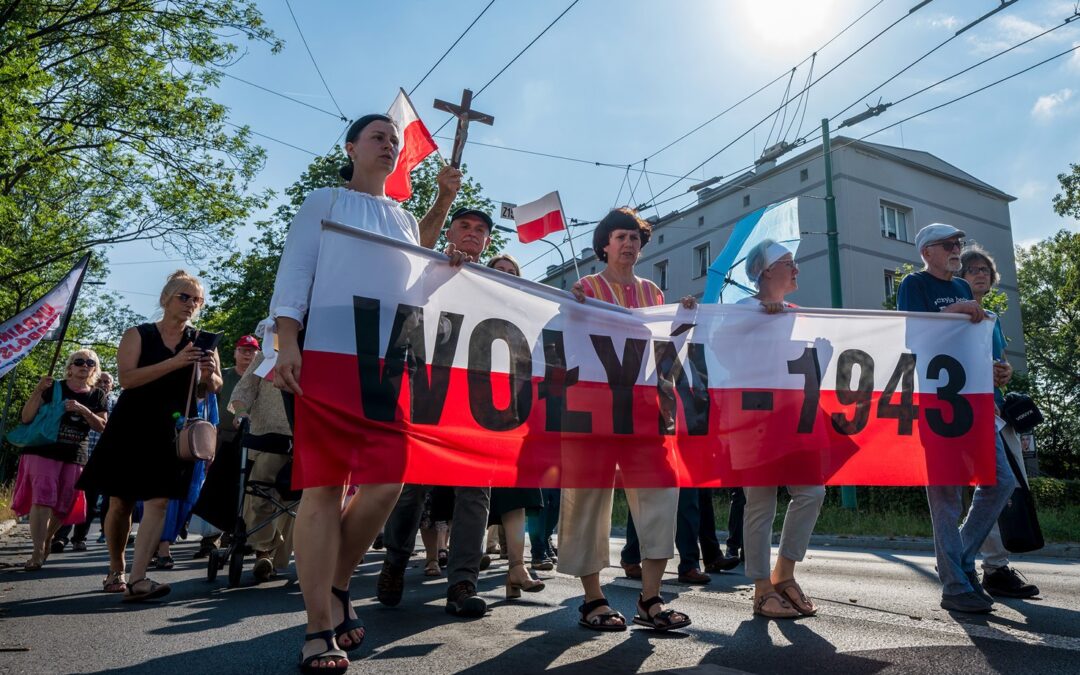Poland’s deputy prime minister has said that Ukraine cannot be admitted to the European Union until the two countries “resolve” the controversial issue of the Volynia massacres, in which Ukrainian nationalists killed around 100,000 ethnic Poles during World War Two.
“Let me state clearly: Ukraine will not join the European Union if the Volhynia issue is not resolved,” Władysław Kosiniak-Kamysz told broadcaster Polsat. “There will be no open borders and there will be no trade exchange at the current level if the Volhynia issue is not resolved.”
“We want Ukraine to develop, but we cannot leave unattended a wound that has not healed,” he added. “Issues regarding the genocide in Volhynia remain unresolved.”
Kosiniak-Kamysz: Ukraina w Unii Europejskiej dopiero po rozwiązaniu kwestii Wołynia https://t.co/dHKJREBMAr
— gazetaprawna.pl (@gazetaprawnapl) July 24, 2024
The massacres of Poles in Volhynia and Eastern Galicia, areas that were then part of German-occupied Poland and now mostly lie in present-day Ukraine, were carried out between 1943 and 1945 by the Ukrainian Insurgent Army (UPA).
The precise death toll is unknown, but estimates range up to 120,000. The victims, the majority of whom were women and children, were, in many cases, killed with extreme brutality.
In Poland, the episode is widely regarded as a genocide, and has been recognised as such by parliament, but Ukraine rejects that description. The issue has regularly caused tensions between the two countries.
Sorry to interrupt your reading. The article continues below.

Notes from Poland is run by a small editorial team and published by an independent, non-profit foundation that is funded through donations from our readers. We cannot do what we do without your support.
Poland has nevertheless been one of Ukraine’s strongest supporters since Russia’s full-scale invasion in 2022, and the two countries also enjoyed strengthening relations even before that.
Speaking to Polsat, Kosiniak-Kamysz made clear that continued humanitarian and military aid to Ukraine during its war with Russia should not be conditioned on resolving the Volhynia issue.
The deputy prime minister also did not outline what it would take to “resolve” the issue. However, Poland has pushed strongly for Kyiv to allow the exhumation of victims on Ukrainian territory and to end the honouring of UPA figures linked to the massacres.
Last year, a deputy foreign minister in Poland’s former Law and Justice (PiS) government said “it is hard to imagine” Ukraine joining the EU without Kyiv allowing exhumations.
A memorial to victims of the Volhynia massacres, in which ethnic Poles were killed by Ukrainian nationalists during WW2, has been unveiled in Poland.
Several cities refused to host the monument, which depicts a baby being impaled on a Ukrainian trident https://t.co/OyOvQlAWkg
— Notes from Poland 🇵🇱 (@notesfrompoland) July 15, 2024
In 2022, Poland’s Institute of National Remembrance (IPN) estimated that the remains of around 55,000 ethnic Polish victims and 10,000 Jewish ones “still lie in death pits in Volhynia, waiting to be found, exhumed and buried”.
Last year, the head of the PiS government, Mateusz Morawiecki, said that Ukrainian President Volodymyr Zelensky had pledged that exhumations would take place. In October, the then government announced that a mass burial pit containing victims of the massacres had been found in Ukraine.
Meanwhile, in further signs of progress, Zelensky and Polish President Andrzej Duda jointly attended a ceremony to commemorate the 80th anniversary of the massacres, and the chairman of Ukraine’s parliament expressed sympathy for the pain felt by Poles over the “terrible events in Volhynia”.
In December 2023, EU leaders agreed to open accession negotiations with Ukraine. The ultimate decision on whether to permit Ukraine to join the bloc must be unanimous among all member states.
In an important symbolic moment, the presidents of Ukraine and Poland have jointly marked the anniversary of the WWII Volhynia massacres, in which Ukrainians killed up to 100,000 Poles.
The issue has often caused tension between two otherwise close allies https://t.co/nwJOJU6A6y
— Notes from Poland 🇵🇱 (@notesfrompoland) July 9, 2023

Daniel Tilles is editor-in-chief of Notes from Poland. He has written on Polish affairs for a wide range of publications, including Foreign Policy, POLITICO Europe, EUobserver and Dziennik Gazeta Prawna.



















